The Moment Napoleon Lost His Empire: The French Invasion of Russia
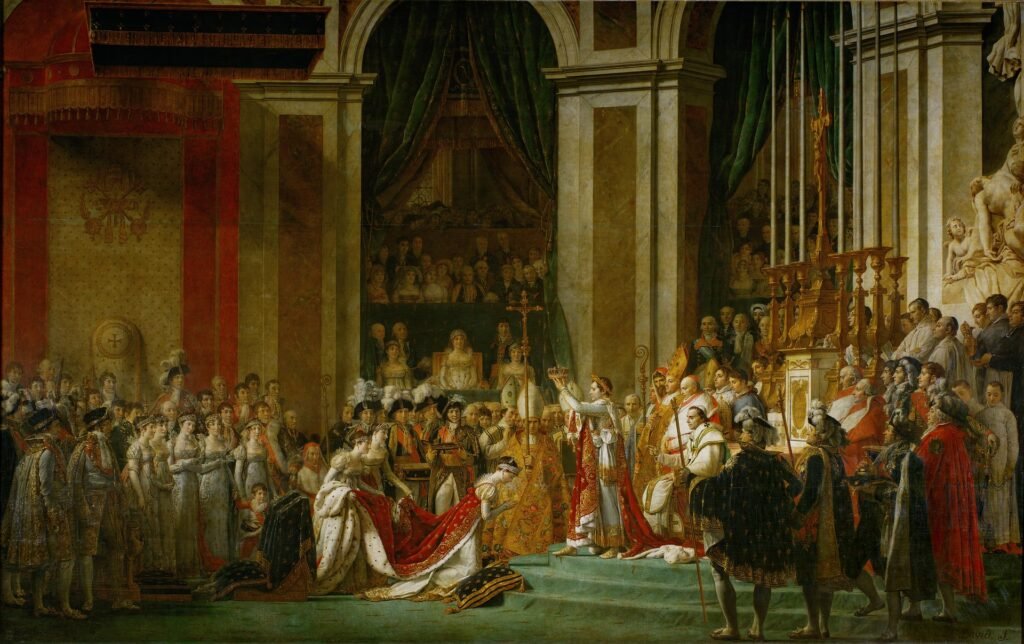
We all heard a little about Napoleon from here and there. Most of you would recognize the name from a famous movie called Napoleon (2023). In the movie, Napoleon was played by Joaquin Phoenix. To be completely honest, I hated it. That movie showed so little about the greatness of Napoleon that I lost interest mid-way. Later, I finished it, but I still didn’t like the film. It showed a lot about his love life rather than the great wars he fought and won. Well, I could ramble about this for a while, But we’re not here to criticize films, are we? We should focus on learning the true history.
Today, we are exactly doing that. I want you to walk down history as I talk about Napoleon Bonaparte and how he almost made an empire that the world could never forget. I’m going to cover topics such as how he became the most feared French and rose to power, how he tried to win over his biggest rival, Britain, and how the real Napoleon that the world feared died coming home from the cold Russia.
Napoleon’s Boldest Gamble?
Napoleon Bonaparte, characterized as a strategic genius with an ambitious encroaching drive clearly expanded his hold over most of Europe by 1812.
However, due to his neverending hunger to secure his territory, he decided to focus all of his attention on Russia, a geographical area that he wanted to control but met stiff resistance.
The invasion of Russia was a high-risk strategy, perhaps his most audacious gamble, as some would say.
To Napoleon, the conquest of Russia was paramount since its defeat would neutralize a formidable adversary and allow French hegemony over Europe.
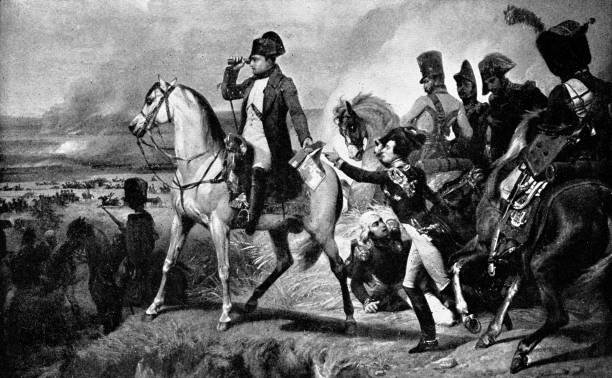
However, the campaign turned out to be far more difficult than anticipated. It was the ruthless Russian winter, the great scale of the territory, and the resolute Russian armies that turned the invasion into a complete disaster. What started off as a sheer pursuit of power soon turned into a fight for existence. This was the time of the dramatic fall of Napoleon, and the impact of this change almost altered the course of the history of Europe for the steps to come.
The Ambition to Chase Absolute Power

In addition to territory expansion, Napoleon sought to control Europe as a whole. He understood the need to isolate Britain, which was his persistent scourge, by tying up Russia, but that was not possible.
Russia, led by Tsar Alexander I, was adamant and withdrew from the Franco-Russian alliance. Therefore, Napoleon determined a short and decisive campaign to impose obedience.
He raised an enormous army of more than 600,000 troops, the Grande Armée, who all shared the belief that strength of numbers and strategy would suffice to subdue Russia.
Heading out with optimism and immense resources, Napoleon felt that victory was within reach.
However, as troops moved and advanced deep into the Russian soil, it became clear that the land that they were facing was huge and rough, and it became apparent early on that the campaign was not going to be as easy as he imagined.
False Triumphs
As Napoleon’s army advanced into Russia, early battles seemed promising. The capture of Smolensk, for example, appeared to be a triumph, fueling hope that a quick victory was within reach.
But beneath the surface, these “victories” hid serious issues. The deeper Napoleon’s troops marched, the more stretched their supply lines became, leaving soldiers hungry and supplies scarce.
The army also began to feel the physical strain of endless marching and fighting, wearing down morale. To make matters worse, the Russians adopted a brutal tactic: they burned their own towns, fields, and supplies in retreat, denying Napoleon’s forces the resources they desperately needed.
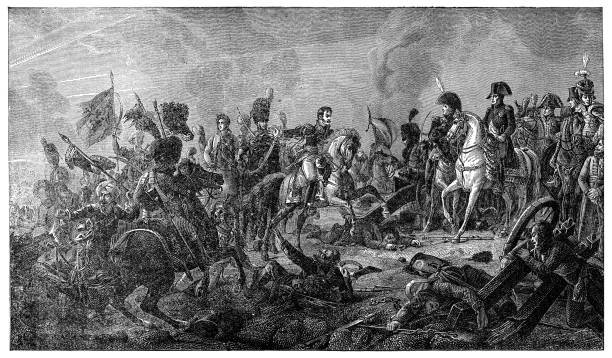
This scorched earth strategy left the Grande Armée with little to sustain itself, turning each victory into a hollow one. Despite early wins, it was clear that Russia was prepared to turn Napoleon’s ambition against him.
A Costly Path Forward Through Cold
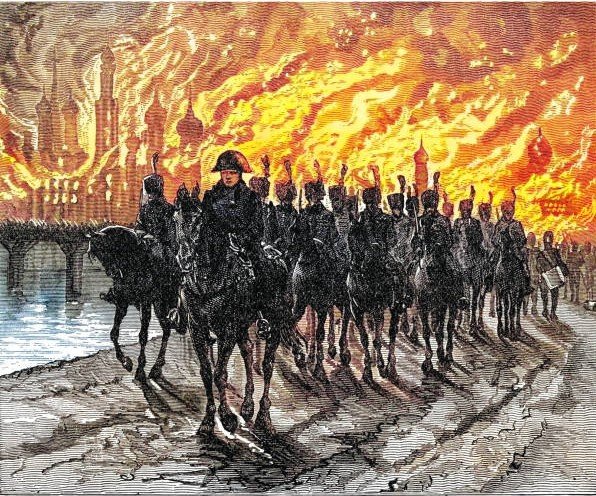
The bloodiest of the confrontations in Napoleon’s campaign was the Battle of Borodino. The end saw tens of thousands dead or wounded on both sides.
For all this costly battle, Napoleon gained nothing, and the Russian army retreated but was not defeated. When the Grande Armée arrived at Moscow, Napoleon expected to win, and that was to bring negotiations and control.
He instead found the city nearly empty, robbed of its people who’d all vanished and much of it burned by the Russians themselves. Now Moscow was a hollow prize, emptied of resources.
When winter came, Napoleon could not see surrender in sight, and he saw that his position was dangerous.
Back in Moscow, in whatever might have been considered a victory, the supposed victory here was a reminder of just how much he miscalculated his campaign, far from home, and just how little supplies and paths forward they had left.
The Turning Point of The Legacy
As Napoleon’s army began its retreat from Moscow, they faced an enemy far more unforgiving than any battlefield: the Russian winter. The temperatures dropped, and it became a nightmarish march through snow and ice.
The supplies ran out, and starvation set in, with many soldiers dying of the freezing cold, hunger, or exhaustion.
That was made much worse by Russian forces constantly attacking the exposed retreating troops, gradually stripping away what was once the Grande Armée.
Once confident soldiers who marched into Russia were now fighting hard just to survive each day.
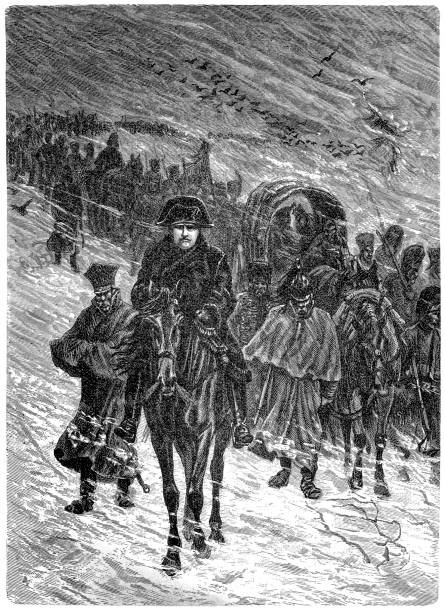
Napoleon eventually left his men behind in a last-ditch effort to save his own future by racing back to France and protecting his empire from possible threats. It was not only a defeat but the complete break up of a power that had held Europe fast with its own grip.
The Invincible Myth of Napoleon Bonaparte
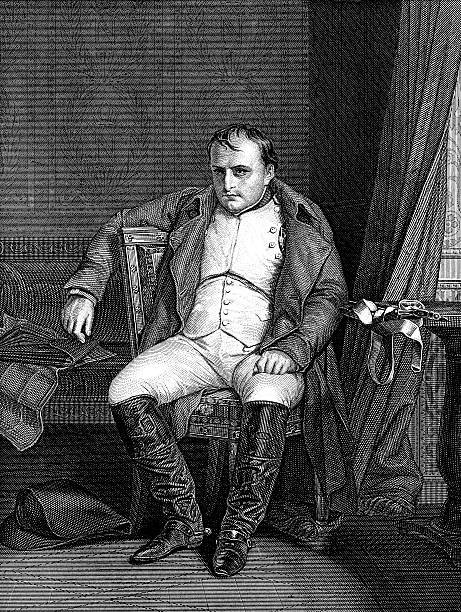
It was Napoleon’s failed attempt to conquer Russia, which was the beginning of his downfall.
He came marching in with a torrential army and a high hope and quickly wore through the brutal Russian winter and the lack of supplies.
He lost thousands of his soldiers in starvation and freezing temperatures as much as in battle. They saw an opportunity, and other European countries united to defeat him.
It had backfired because his ambition to rule over all of Europe had pushed him too far. Napoleon had no choice after he was crushed at Leipzig, so he gave up his throne and went into exile.
Even the strongest leaders can fall prey to their own ambitions. His story reminded us that someone with the strongest of leaders loses their strength, and it shows that power can get taken away when you don’t control it.
We all know how brilliant Napoleon was, from his first battle, the Siege of Toulon, in 1793 to the Battle of Waterloo in 1815. This man was a genius, a brilliant military strategist. Even though his reign might not have lasted like the other great empires, he definitely showed us what talent can get you.
